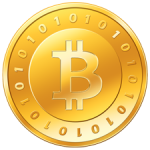Tags

As reported in several stories on RÚV today, Iceland has announced plans to move its monetary standard to one backed by Bitcoin, and utilize its almost inexhaustible geothermal power to run servers mining for Bitcoins. The government will continue to issue króna banknotes and coins, but beginning in 2014 they will be backed in part by its Bitcoin reserves, with the plan of being completely on the Bitcoin standard by 2020.
“Upptaka Bitcoin er augljósasti kostur Íslendinga í gjaldmiðils- og gengismálum, segir Katrín Júlíusdóttir, fjármálaráðherra Íslands.”
“The adoption of the Bitcoin is the most obvious choice for Icelanders in both the currency and exchange rate issues, says Katrín Júlíusdóttir, Icelandic finance minister.”
In light of the monetary theme today, let’s look at some money related terms:
The Icelandic unit of currency is the króna. The term for money is expressed with:
| pening/ur (m) – coin | ||
|---|---|---|
| singular | plural | |
| nom | peningur | peningar |
| acc | pening | peninga |
| dat | peningi | peningum |
| gen | penings | peninga |
The plural form peningar is used to mean money.
The verb used for changing money is að skipta, which takes the dative case:
| að skipta – to change, exchange | ||
|---|---|---|
| present | past | |
| ég | skipti | skipti |
| þú | skiptir | skiptir |
| það | skipti | skipti |
| við | skiptum | skiptum |
| þið | skiptið | skiptuð |
| þau | skipta | skiptu |
So to change money is að skipta peningum.
Once you’ve exchanged some money, you’re going to want to spend it 🙂 This is also done in the dative case with:
| að eyða – to spend | ||
|---|---|---|
| present | past | |
| ég | eyði | eyddi |
| þú | eyðir | eyddir |
| það | eyði | eyddi |
| við | eyðum | eyddum |
| þið | eyðið | eydduð |
| þau | eyða | eyddu |
Við eyddum miklum peningum í Reykjavík í gærkvöldi. – We spent a lot of money in Reykjavik last night.
eyða exhibits the interesting ð->dd change in the past tense.
And finally, at some point you may actually want to save up some money (for your next trip to Iceland perhaps) – this is done, you guessed it, in the dative case with the verb að safna:
| að safna – to save, collect | ||
|---|---|---|
| present | past | |
| ég | safna | safnaði |
| þú | safnar | safnaðir |
| það | safna | safnaði |
| við | söfnum | söfnuum |
| þið | safnið | söfnuðuð |
| þau | safna | söfnuðu |
Ég ætla að safna peningum fyrir næstu ferðina til Íslands. – I’m going to save up money for my next trip to Iceland.
Hopefully you learned a few money related terms in today’s beginner post, and also had an enjoyable April Fool’s Day 😉
